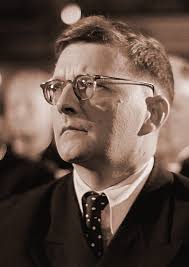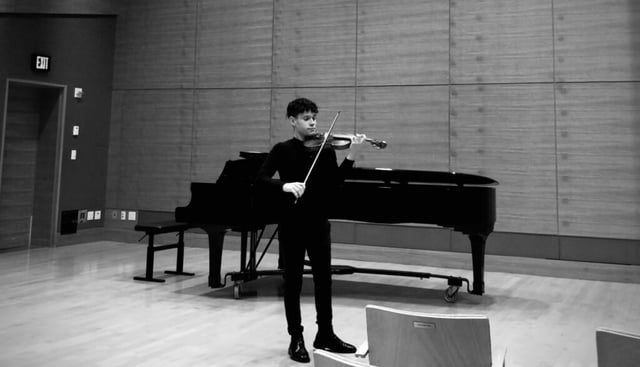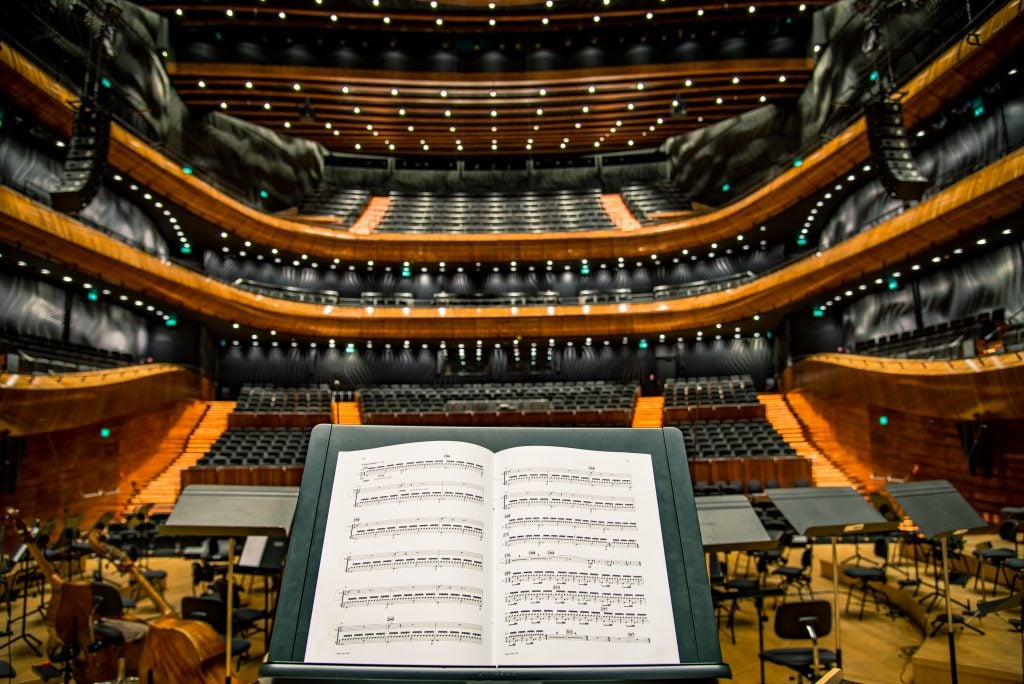It has been said that “all art is political.” In the history of Western classical music, this has never been more true than for those composers who wrote under the Soviet regime of twentieth century Russia. Inebriated with the powerful grip he had achieved over a generation, the infamous demagogue and dictator Josef Stalin censored all Art produced by his “comrades” to ensure that it aligned with the ideals propagated by the state rather than artistic self-indulgence. Despite risking expulsion or the execution of himself and his family members, composer Dmitri Dmitriyevich Shostakovich (1909-1975) used his music to comment on the society in which he lived and to challenge its leaders.
A prodigious, prolific composer, Shostakovich’s work was well appreciated by great musical minds across the globe as early as the publication and later Berlin premiere of his First Symphony in F minor, 1924. Just under a decade later, his second opera Lady Macbeth of the Mtsesnk District premiered, granting him continued praise—that is, until Stalin himself attended. In fact, the composer witnessed the dictator’s own reaction to the harsh realism of his musical adaptation of a libretto about a “fallen woman” driven to unspeakable acts. Though at first a great success, Lady Macbeth at once became Shostakovich’s shame, causing him to fall dangerously out of favor, both within the public sphere and in the prying eyes of the Soviet state.

Around this time, those close to Shostakovich, his friends, colleagues, and relatives, began disappearing. Some of his former works were facing unusual scrutiny as well, forcing the composer to stick to lighthearted, film music rather than serious works. This overwhelming pressure, however, gave fruit to a transformation in the composer’s style of writing for which we remember him today. Shostakovich’s Fifth Symphony in D minor, for example, is conventional, if not conservative in its form and instrumentation, but it is remarkable for its epic programme or musical narrative. On the surface, it reads as the story of a serious inner conflict which is ultimately resolved triumphantly, collectively, and pleasing to authority. In reality, it reflects the desolation of a people under Stalin and closes with insistent, if not hollow, nationalist optimism on which the composer and his compatriots’ life depended. Perhaps owed to the interpretive ambiguity of its supreme music, Shostakovich’s Fifth, a symphony that may have been his last, secured the composer’s livelihood and allowed him to continue composing in this manner.
Shostakovich’s music has become solidified as a cornerstone of the classical repertoire. Over the course of my musical upbringing, I have had the privilege of learning some of his greatest works, and, over time, the dark history which surrounds it. I remember long Sunday afternoons in youth orchestra, studying the animated Ninth Symphony, a work that reads as sinisterly comical but is in fact a sarcastic affront to the regime. In high school, I learned the Third String Quartet, which, contrarily, recounts “Blithe ignorance of the future cataclysm; Rumblings of unrest and anticipation; Forces of war unleashed; Memory of the dead; The eternal question: Why? And for what?.” Conductors and coaches alike would point out a rhythm here or there which was supposed to symbolize the characteristic knock of the KGB or a melody line reflecting the desolation of the Siberian wilderness. Images of red armies, sirens, and orchestras losing numbers to famine offering starved proletariat audiences nourishment via the music. Without personal experience of wartime or of being at odds with your government, it was difficult to channel the true spirit of this music.

Today, however, I write from a different vantage point. I came of age under an administration which promised to prioritize human rights and opportunity for all. Now, having seen the rise of our worst fears incarnate, I - like so many - am concerned for myself, my friends, my colleagues, or relatives, many of whom would now be classified as enemies of the state simply for existing. Migration bans, limited or null access to healthcare, and the removal of protections helping ensure the autonomy of sexual and gender minorities take the form of whispers foretelling the horrors described in Shostakovich’s autobiographical writing. At the Shepherd School Symphony, we have just begun preparing his Eighth Symphony in C minor (1946), a massive, elegiac work referred to as "his most tragic,” which ends with quiet, major resolve. I like to think of its programming as our encoded message to the world, to “Trump’s America,” that communities from all backgrounds and nationalities can work together in raised voices and subdued cries to resist. Whether or not the man himself attends our concert – as well as the future as a whole - is uncertain. But thanks to the Point Foundation, I know I have the support necessary to continue my education and, perhaps, write the symphony of our time.
This post was written by Point Alum Gabriel Anker

Gabriel Anker is originally from San Juan, Puerto Rico. He attended Rice University in Houston and studied violin performance and linguistics. Read more about Gabriel here.

